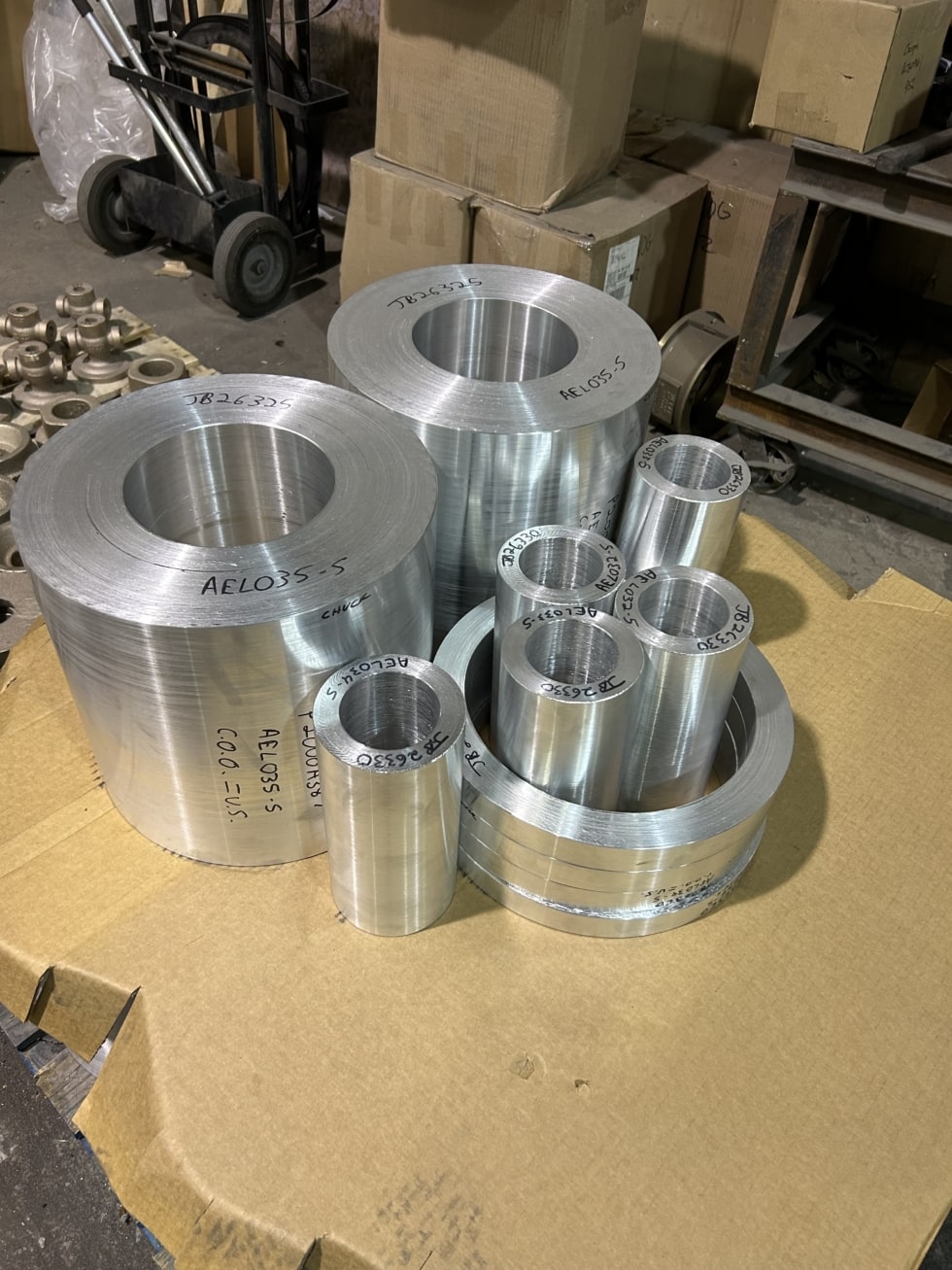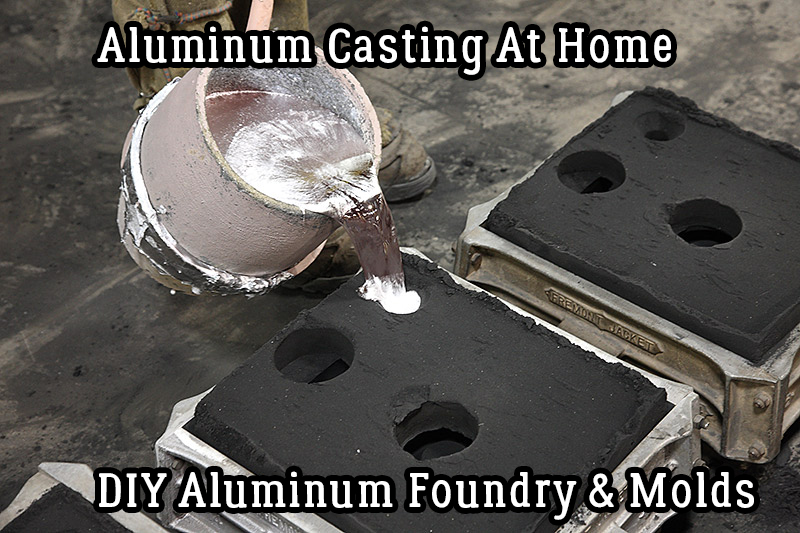Comprehending the Conveniences and Innovations in the Aluminum Foundry Sector
The Aluminum Foundry market plays an important role in modern production. Its lightweight residential properties especially boost fuel effectiveness, specifically in aerospace and automobile sectors. Additionally, Aluminum's resistance to corrosion assurances long life in different applications. As the market develops, technologies such as sophisticated recycling and additive manufacturing are improving manufacturing techniques. Discovering these innovations discloses not just the advantages but also the difficulties ahead for Aluminum shops in a quickly changing market.
The Lightweight Benefit of Aluminum
Aluminum's light-weight nature provides significant advantages throughout various markets, particularly in production and transport. Its reduced thickness permits for the manufacturing of elements that are much easier to mount and deal with, causing reduced labor expenses and enhanced effectiveness. In the auto field, lighter automobiles add to boosted gas economy and reduced exhausts, straightening with international sustainability objectives. In aerospace, the usage of Aluminum reduces the total weight of airplane, which is crucial for boosting performance and reducing functional costs.
Furthermore, Aluminum's lightweight residential or commercial properties facilitate ingenious layouts that were formerly unfeasible with larger products. This flexibility allows suppliers to create complex shapes and frameworks while preserving architectural integrity. Generally, the light-weight benefit of Aluminum not just improves product efficiency yet likewise drives improvements in modern technology and style, making it a recommended material in various applications.
Corrosion Resistance and Sturdiness
The Aluminum Foundry industry is renowned for generating materials with remarkable corrosion resistance, making them suitable for various applications. This property, integrated with enhanced structural integrity, adds to the durable performance advantages that Aluminum parts offer. Because of this, industries significantly rely upon Aluminum to meet demanding ecological conditions without compromising quality.
Superior Corrosion Resistance
While numerous steels deal with considerable challenges from environmental aspects, Aluminum sticks out for its remarkable deterioration resistance, making it a preferred selection in numerous applications. This property is primarily due to a natural oxide layer that bases on the Aluminum surface area, providing an obstacle versus dampness and corrosive agents. Unlike various other steels that might rust or deteriorate over time, Aluminum keeps its stability also in harsh settings, such as seaside areas or industrial settings. Furthermore, its lightweight nature integrated with corrosion resistance makes it optimal for applications in aerospace, vehicle, and aquatic industries. Overall, Aluminum's extraordinary longevity not just enhances item longevity yet likewise minimizes upkeep prices, providing an engaging benefit for consumers and makers alike.
Improved Architectural Integrity
Developers and engineers progressively recognize the value of improved structural honesty in modern applications, where both corrosion resistance and resilience are vital. Aluminum alloys, understood for their light-weight buildings, likewise exhibit remarkable resistance to corrosion, making them appropriate for severe environments. The cutting-edge strategies used in the Aluminum Foundry market add considerably to generating elements with improved resilience. Advanced casting processes and alloy structures are customized to meet details efficiency demands, making certain that structures can withstand extreme conditions without endangering honesty. Surface therapies and finishings boost the lifespan of Aluminum products, additionally alleviating deterioration over time. This emphasis on improved structural honesty not only prolongs the usability of materials yet likewise lowers upkeep costs, strengthening Aluminum's setting as a product of choice in numerous markets.
Lasting Efficiency Advantages
Long-lasting performance in Aluminum parts is largely attributed to their superior deterioration resistance and longevity. Unlike numerous steels, Aluminum normally creates a safety oxide layer, which protects against corrosion and degeneration in various atmospheres, consisting of industrial and aquatic setups. This inherent property significantly prolongs the lifespan of Aluminum products, lessening upkeep and replacement prices. Furthermore, the lightweight nature of Aluminum boosts its applicability across sectors without compromising stamina. The material's resistance to deterioration also contributes to its reliability sought after applications, making it a perfect selection for automotive, aerospace, and building industries. As sectors increasingly focus on sustainability and durability, Aluminum's efficiency advantages straighten with modern-day design needs, strengthening its function in innovative manufacturing processes.
Ecological Effect and Sustainability
 As the Aluminum Foundry sector evolves, it progressively focuses on environmental effect and sustainability, recognizing the requirement for responsible methods in the face of environment change. Efforts to decrease waste and energy intake are at the center, with numerous factories embracing recycling campaigns to redeem Aluminum scrap. This not just lowers raw material use however likewise notably reduces power expense, as recycled Aluminum requires just a fraction of the power contrasted to main production.
As the Aluminum Foundry sector evolves, it progressively focuses on environmental effect and sustainability, recognizing the requirement for responsible methods in the face of environment change. Efforts to decrease waste and energy intake are at the center, with numerous factories embracing recycling campaigns to redeem Aluminum scrap. This not just lowers raw material use however likewise notably reduces power expense, as recycled Aluminum requires just a fraction of the power contrasted to main production.Moreover, improvements in exhausts manage innovations are being implemented to decrease air pollutants, straightening procedures with stricter environmental laws. Foundries are additionally discovering alternate energy useful link sources, such as solar and wind, to power their facilities sustainably. By cultivating collaboration with stakeholders, the industry intends to establish ingenious remedies that enhance environmental stewardship. Jointly, these initiatives highlight a commitment to lowering the Aluminum Foundry's carbon impact while promoting a round economic situation within the manufacturing sector.
Advanced Manufacturing Techniques
 Revolutionizing production processes, the Aluminum Foundry market is significantly incorporating advanced production methods to boost efficiency and accuracy. Techniques such as computer mathematical control (CNC) machining and additive manufacturing have arised as crucial components in optimizing production workflows. CNC machining enables high-precision part construction, substantially reducing product waste and manufacturing time. At the same time, additive production opens up brand-new avenues for complex geometries and light-weight layouts that were previously hard to achieve.
Revolutionizing production processes, the Aluminum Foundry market is significantly incorporating advanced production methods to boost efficiency and accuracy. Techniques such as computer mathematical control (CNC) machining and additive manufacturing have arised as crucial components in optimizing production workflows. CNC machining enables high-precision part construction, substantially reducing product waste and manufacturing time. At the same time, additive production opens up brand-new avenues for complex geometries and light-weight layouts that were previously hard to achieve.Furthermore, the deployment of automation and robotics in Aluminum foundries simplifies operations, reduces human error, and enhances employee security. These technologies assist in an even more responsive production setting, making it possible for producers to adjust quickly to market demands. The assimilation of innovative simulation software application further enhances the design and testing stages, resulting in exceptional item top quality. Collectively, these techniques not just boost operational efficiency but also foster advancement, positioning the Aluminum Foundry industry at the leading edge of contemporary manufacturing.
Developments in Recycling Procedures
The Aluminum Foundry industry is not only advancing in producing techniques however is additionally making significant strides in reusing processes. Technologies are emerging to enhance the effectiveness of recycling approaches, decreasing power intake and improving sustainability. Advanced sorting modern technologies, such as automated optical sorting, make it possible for the identification and separation of Aluminum from various other materials with high accuracy. This results in a greater high quality of recycled Aluminum, which is vital for keeping the honesty of the final products.
Closed-loop recycling systems are being executed, permitting manufacturers to reuse Aluminum scrap within their own manufacturing processes. This lessens waste and advertises a circular economic climate. Furthermore, research study right into new recycling strategies, such as hydrometallurgical processes, provides the possibility for recouping Aluminum from complicated waste streams. These technologies not next just add to lowering the carbon impact of the Aluminum Foundry sector yet also reinforce its financial feasibility in a significantly ecologically mindful market.
Applications Across Numerous Industries
Various sectors are increasingly identifying the convenience and advantages of Aluminum Foundry items, resulting in extensive applications throughout fields such as auto, building, aerospace, and customer goods. In the automotive market, Aluminum spreadings contribute to lightweight vehicle layouts, boosting fuel efficiency and performance. Aerospace manufacturers use Aluminum elements for their strength-to-weight proportion, vital for aircraft frameworks and elements.
In construction, Aluminum is favored for its toughness and resistance to deterioration, making it perfect for window structures, roof, and structural supports. Consumer products additionally take advantage of Aluminum Foundry products, as seen in kitchenware, electronic devices, and packaging, where lightweight and recyclable materials are important.
The versatility of Aluminum Foundry methods permits for accurate requirements and intricate designs, satisfying the diverse requirements of these industries. Consequently, Aluminum Foundry products are becoming indispensable to contemporary production procedures throughout different markets.
Future Fads in Aluminum Foundries
As markets remain to evolve, Aluminum factories are positioned to accept a number of crucial fads that promise to enhance performance and sustainability. One famous pattern is the raising adoption of electronic modern technologies, including automation and man-made intelligence, which streamline procedures and enhance quality control. Additionally, the push in the direction of lasting practices is leading foundries to invest in recycling modern technologies, greatly decreasing waste and energy consumption.
 Another emerging pattern is making use of sophisticated alloys and materials, dealing with the expanding demand for resilient and light-weight components throughout different industries (Aluminum Foundry). Furthermore, the integration of additive manufacturing methods is anticipated to revolutionize part layout, supplying personalization and decreasing preparations
Another emerging pattern is making use of sophisticated alloys and materials, dealing with the expanding demand for resilient and light-weight components throughout different industries (Aluminum Foundry). Furthermore, the integration of additive manufacturing methods is anticipated to revolutionize part layout, supplying personalization and decreasing preparationsPartnership with study establishments is additionally expected to drive innovation, as factories look for to develop new procedures and products. Aluminum Foundry. Jointly, these fads show a transformative future for the Aluminum Foundry sector, lining up with more comprehensive objectives of sustainability and effectiveness
Regularly Asked Inquiries
What Are the Regular Prices Connected With Aluminum Foundry Production?
The regular prices related to Aluminum Foundry production include basic materials, labor, energy, devices maintenance, and overhead costs. These elements collectively affect the general monetary investment required for reliable Aluminum spreading procedures.
Exactly How Does Aluminum Contrast to Various Other Steels in Toughness?
Aluminum, while lighter than lots of metals, shows remarkable strength-to-weight proportions. Contrasted to steel, Aluminum is less strong however offers outstanding rust resistance, making it a favorable selection in applications where weight and longevity are important.
What Security Procedures Remain In Area in Aluminum Foundries?
Security steps in Aluminum foundries usually include mandatory personal safety tools, air flow systems to regulate fumes, routine devices maintenance, training programs for staff members, and adherence to rigorous safety and security laws to reduce dangers related to liquified metal handling.
Exactly How Is Quality Assurance Managed in Aluminum Spreading Processes?
Quality assurance in Aluminum spreading processes entails rigorous examinations at numerous stages, including basic material examination, process monitoring, and final product screening. Techniques such as statistical process control and non-destructive testing assurance adherence to industry requirements.
What Accreditations Are Necessary for Aluminum Foundry Distributors?
The relevance of qualifications for Aluminum Foundry providers includes ISO 9001 for quality monitoring, ISO 14001 for environmental monitoring, and industry-specific criteria like ASTM and SAE, making certain compliance, read this article safety, and reliability in making processes.
The Aluminum Foundry industry plays a vital role in contemporary manufacturing. The Aluminum Foundry market is renowned for producing materials with remarkable corrosion resistance, making them optimal for various applications. Changing production processes, the Aluminum Foundry industry is increasingly incorporating innovative production methods to improve efficiency and accuracy. The Aluminum Foundry market is not only progressing in making strategies but is also making substantial strides in reusing procedures. As industries proceed to evolve, Aluminum factories are positioned to embrace several crucial fads that assure to boost performance and sustainability.